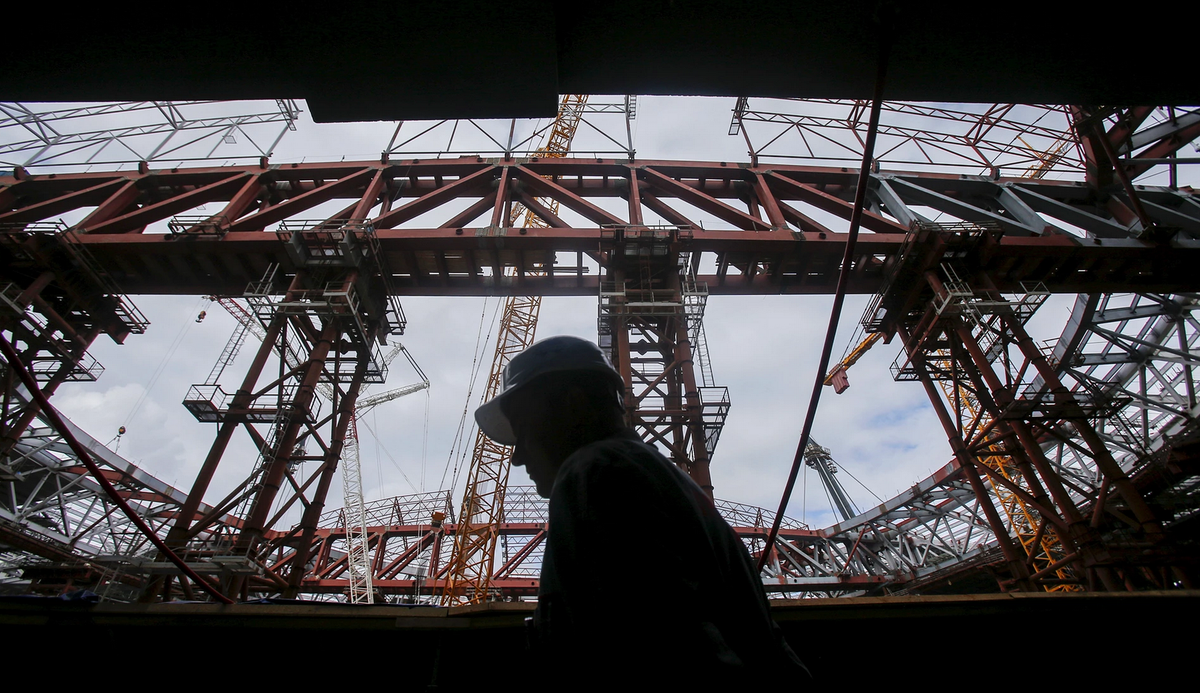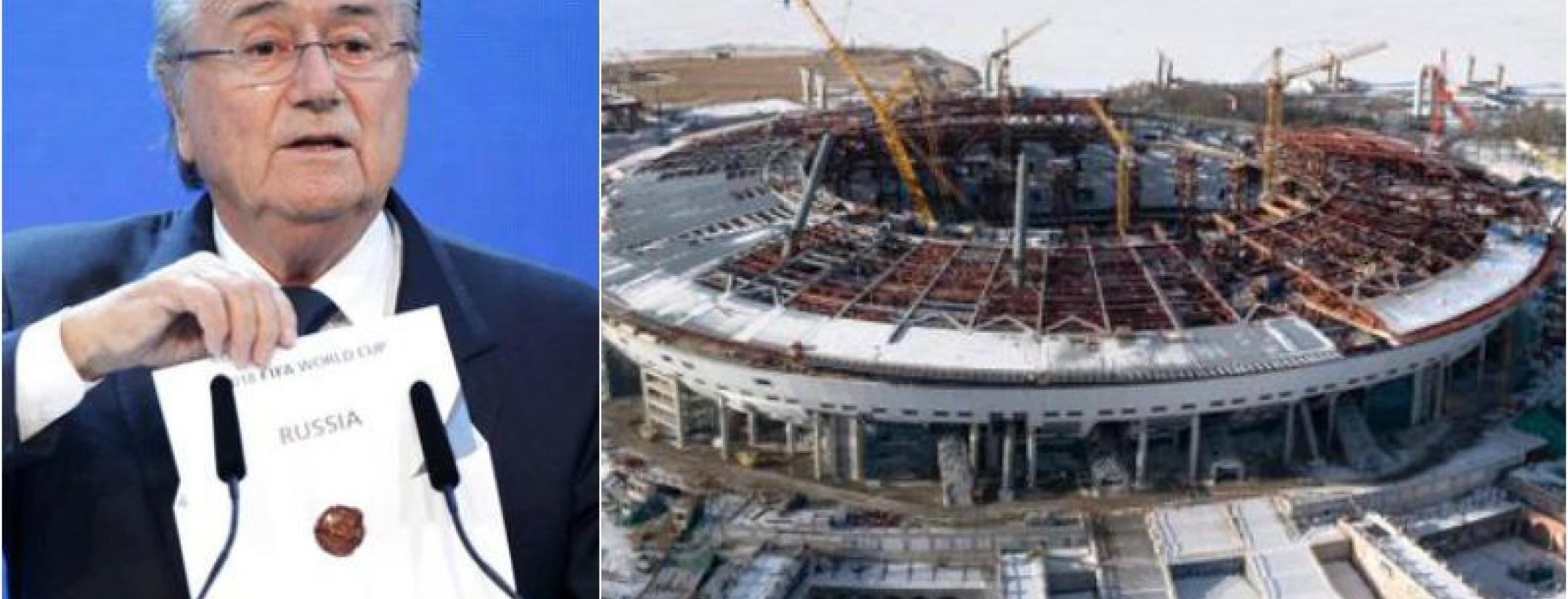As if there was ever a dull moment in the world of FIFA these days; issues revolving around the 2018 and 2022 World Cups continue to get worse. The laborers involved with constructing the Russian World Cup stadiums have come out saying they haven’t been paid for their work in months.
Just one look at the stadium in St. Petersburg will make anyone understand why it is one of the most expensive stadiums built for football. What was originally estimated to cost 6.7 billion roubles has now inflated in price to 38 billion roubles. An influx of over 30 billion roubles (~$440,000).

With that much money being splashed around, there is no excuse for not having construction workers being paid on time. “Everyone has hold-ups now. I haven’t gotten my wages for the third month in a row,” said a 47-year-old worker from Uzbekistan. The issues surrounding the pay for laborers has become so bad that many are gathering together to sue the subcontractors involved in the project. There have already been five reported deaths since 2011, and, with no pay, working conditions are continuing to get worse.
However, FIFA still reports that the construction is moving at a good pace and that the final product will be ready in time for the 2017 Confederations Cup. This is very reminiscent of Blatter’s ignorance of the s***show that is the Qatar World Cup scheduled to take place in 2022.
The venue contractors, Transstroy, have said that all employees working at the sites have been paid in full and that the site itself meets all safety standards. Yet, when workers have asked about their wages they have been threatened with the possibility of being fired or forced to leave work early. With more media attention falling on Russia and its contractors, hopefully it will only be a matter of time before Transstroy and its subsidiaries will have to pay up.




